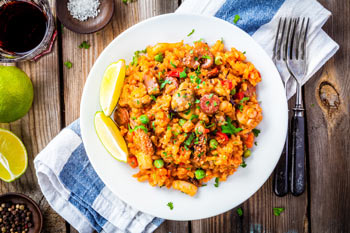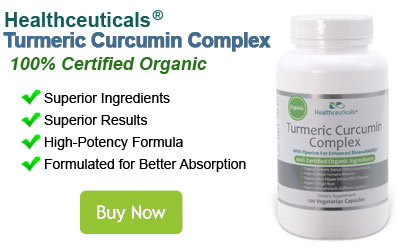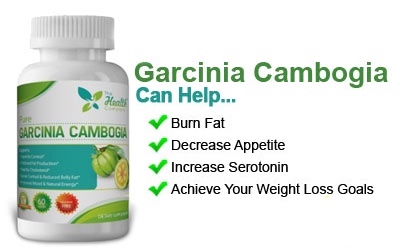
When you are trying to lose weight, you will often read and hear many different tips about ways to make it quicker and easier. One thing you might be told is that eating spicy food can help you lose weight faster. Have you ever wondered why that might be the case?
Hot peppers, including jalapenos, habaneros, and cayenne, all owe their heat to a chemical called capsaicin. This is the substance that scientists believe may aid people in losing weight.
How Can Capsaicin Help with Weight Loss?
When you eat spicy, capsaicin-containing food, it raises your core body temperature a bit for a short period of time. Some scientists feel that this increases the calories that a person's body is burning, effectively raising their metabolism temporarily (Mary-Jon Ludy, 2011).
Other scientists believe that capsaicin lowers your appetite by causing you to feel fuller after you eat foods containing it.
A third, less obvious way that capsaicin may help you lose weight is that it encourages more mindful eating. The spiciness inspires you to eat more slowly, allowing your brain to catch up with your stomach and let you know that you're full faster.
Other Health Benefits of Capsaicin
Besides the help that capsaicin can provide when you are trying to lose weight, scientists suspect several other positive effects of eating this chemical, as well. These include:
- Blood thinning capabilities. Scientists have noticed that groups of people who eat a large amount of spicy food have lower incidences of blood clotting disorders than those who do not. Studies have supported capsaicin's ability to thin the blood (Jolayemi Adebayo Taiwo Ezekiel, 2014).
- Anti-inflammatory and pain-reduction features. Capsaicin may encourage the release of endorphins, which can decrease pain. Studies on people with arthritis found significantly more pain reduction in those who were treated with topical capsaicin formulations than in those who weren't (Deal CL, 1991).
- Reducing bad cholesterol levels and breaking down cholesterol plaques already present in the heart. Capsaicin may be heart protective, decreasing cholesterol and helping to clean artery plaques (Society, 2012).
Now that you've learned how capsaicin can improve your health, it's time to try out some easy recipes. Here are some great ones to start with:
- Spicy Chinese Eggplant with Garlic Sauce
- Jalapeno-Cilantro-Lime Dipping Sauce
- Spicy Cuban-Inspired Garlic Orange Salmon
- Homemade Spicy Fermented Kimchi
To learn about other weight loss helpers, read our overview article: "18 Proven Weight Loss Tips."
Works Cited
- Deal CL, S. T. (1991, May). Treatment of arthritis with topical capsaicin: a double-blind trial. Retrieved from pubmed.gov.
- Jolayemi Adebayo Taiwo Ezekiel, O. J. (2014, Sept.). Effects of Capsaicin on Coagulation: Will this be the New Blood Thinner. Retrieved from Science Publishing Group: DOI: 10.11648/j.cmr.20140305.17.
- Mary-Jon Ludy, R. D. (2011, March 1). The effects of hedonically acceptable red pepper doses on thermogenesis and appetite. Retrieved from Science Direct: DOI: 10.1016/j.physbeh.2010.11.018.
- Society, A. C. (2012, March 27). Hot pepper compound could help hearts. Retrieved from Science Daily.
You May Also Like These Articles/Recipes:
14 Surprising Health Benefits of Sleep
Jalapeño-Cilantro-Lime Dipping Sauce
Cauliflower and Pears: High Fiber, Low Carb Dietary Powerhouses


